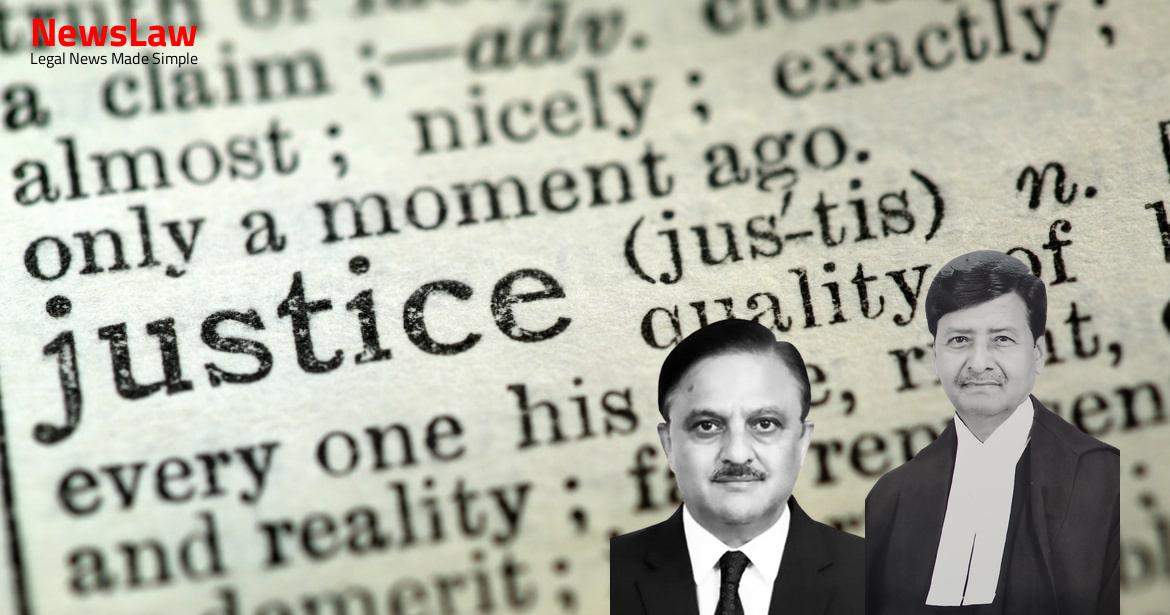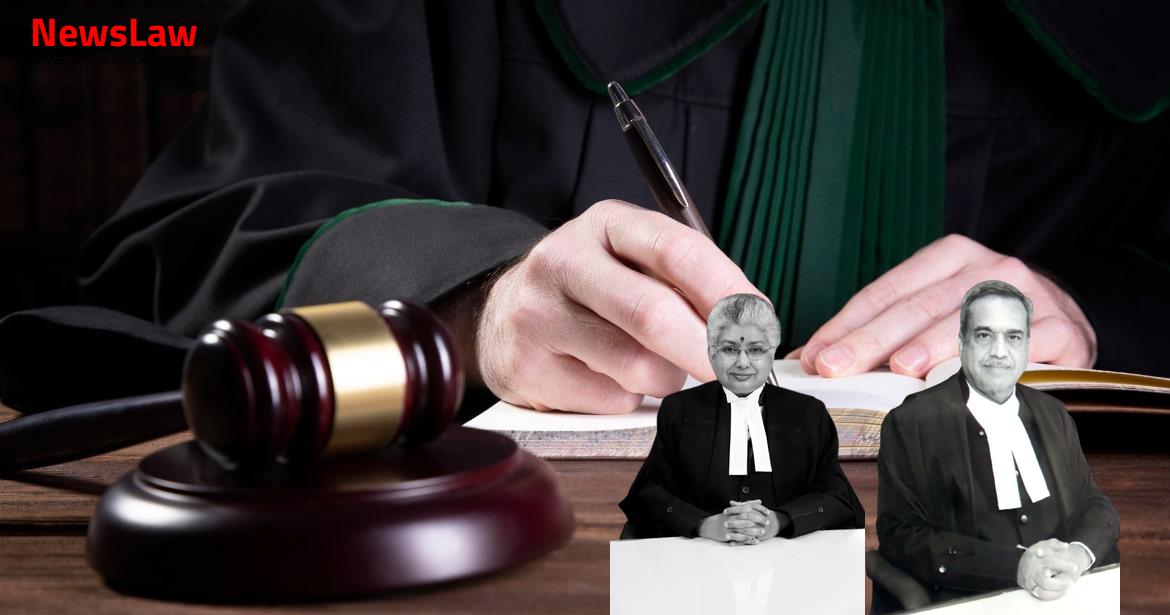In a significant legal development, the Supreme Court has granted special leave to consider the issues raised in the petitions challenging the RPC by Original Names. The High Court had dismissed the writ petitions, leading to this appeal. Stay tuned for more updates on this crucial case related to consumer protection laws. #ConsumerProtection #SupremeCourt #LegalJudgment
Arguments
- The counsel argued that statutory dues cannot be claimed as a deficiency in services based on a previous holding.
- The amicus curiae appointed by the court disagreed, stating that the NCDRC lacks jurisdiction to decide the legitimacy of demands like ‘composition fee’ and ‘extension fee’.
- The amicus curiae cited the case of Sunita (supra) as an aberration in a series of long-standing judgments, pointing out that the NCDRC has jurisdiction to protect consumers against defective services by a statutory body.
- The amicus curiae emphasized the need for a liberal construction of the Consumer Protection Act, while also highlighting that the Act should not be used to extend remedies or benefits not intended by the legislature.
- Reference was made to the judgments in Lucknow Development Authority v. M.K. Gupta, (1994) 1 SCC 243, and Ghaziabad Development Authority v. Balbir Singh, (2004) 5 SCC 65, which affirmed the NCDRC’s jurisdiction to address consumer complaints against defective services by statutory bodies.
- The learned amicus curiae supported the view that the Sunita case was per incuriam
- The learned amicus curiae presented various judgments of the court to argue that statutory authorities fall under the ambit of the Act
Analysis
- Interpretation provided in the Sunita case cannot be sustained as the service provided by the petitioner falls under the ambit of ‘service’.
- The authority has the power to levy certain statutory fees.
- Non-fulfilment of conditions or standards amounts to ‘deficiency in services’ under the Act.
- The judiciary is tasked with expanding the provisions on a case-to-case basis.
- The Consumer Forums have the jurisdiction to evaluate the legality of exactions or conditions by authorities before such exactions.
- The legislative intention is to protect consumers against services rendered by statutory bodies.
- Not all statutory dues/exactions are amenable to the jurisdiction of the Consumer Forum, only those exacted for a service rendered fall under its jurisdiction.
- Consumer Forums can award compensation for any loss or damage suffered by a consumer within the wide meaning of compensation.
- All statutory obligations are not sovereign functions.
- Sovereign functions like judicial decision making or policing are exempt from the Consumer Protection Act.
- Government or statutory bodies’ welfare activities through economic adventures fall under the jurisdiction of consumer forums.
- Public authorities are accountable for their behavior before authorities maintaining the rule of law.
- The dispute concerning the validity of the imposition of statutory dues due to a ‘deficiency in service’ can be addressed by consumer forums.
- Sovereign functions are evolving due to privatization and globalization.
- Consumer Forums have jurisdiction unless a statute exempts or provides immunity for deficiency in service.
- The test is whether the duty and function performed by a statutory body is a service or facility.
- Statutory bodies like local authorities or government bodies are also subject to consumer protection laws when providing services.
- Consumer protection laws apply to cases of service rendered by statutory and public authorities.
- The distinction between a tax and a fee lies in the fact that a fee is for a special benefit.
- Fees can be charged for specific services rendered, and public interest is the basis for all impositions.
- Consumer laws apply based on the relationship between the service provider and the consumer.
- The term ‘deficiency’ in the Act includes any fault, imperfection, shortcoming, or inadequacy in the quality or manner of performance of a service.
- Fees charged by authorities can be for a special service or privilege conferred to individuals.
- Statutory bodies may be liable to compensate for misfeasance in public office such as oppressive, capricious, arbitrary, or negligent acts.
- The law laid down in the mentioned case is deemed invalid in the eyes of the law.
- Consequently, the ruling in the case has been overruled.
Also Read: CRPF Act: Validity of Rule 27 for Compulsory Retirement – Case of Head Constable vs. CRPF
Decision
- The instant special leave petitions were filed by Original Names seeking relief against the judgment of the High Court.
- The High Court had dismissed the writ petitions filed by Original Names challenging the RPC.
- The RPC in question related to [specific issue]
- Original Names argued that the RPC violated their fundamental rights.
- The Supreme Court granted special leave to consider the issues raised in the petitions.
Also Read: DAMEPL vs. DMRC: Curative Petition and Arbitral Award Restoration
Case Title: PUDA Vs. VIDYA CHETAL
Case Number: SLP(C) No.-004272-004272 / 2015



